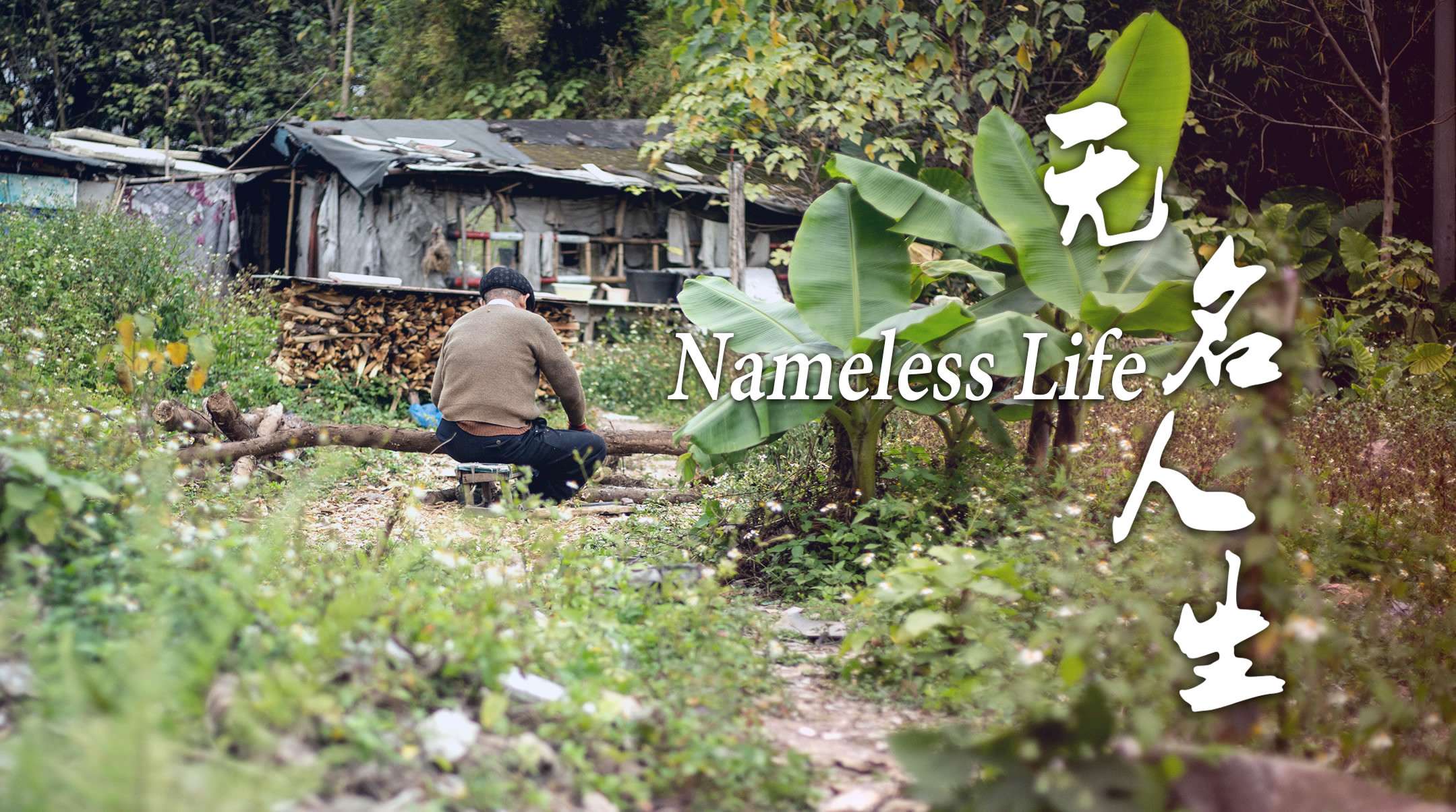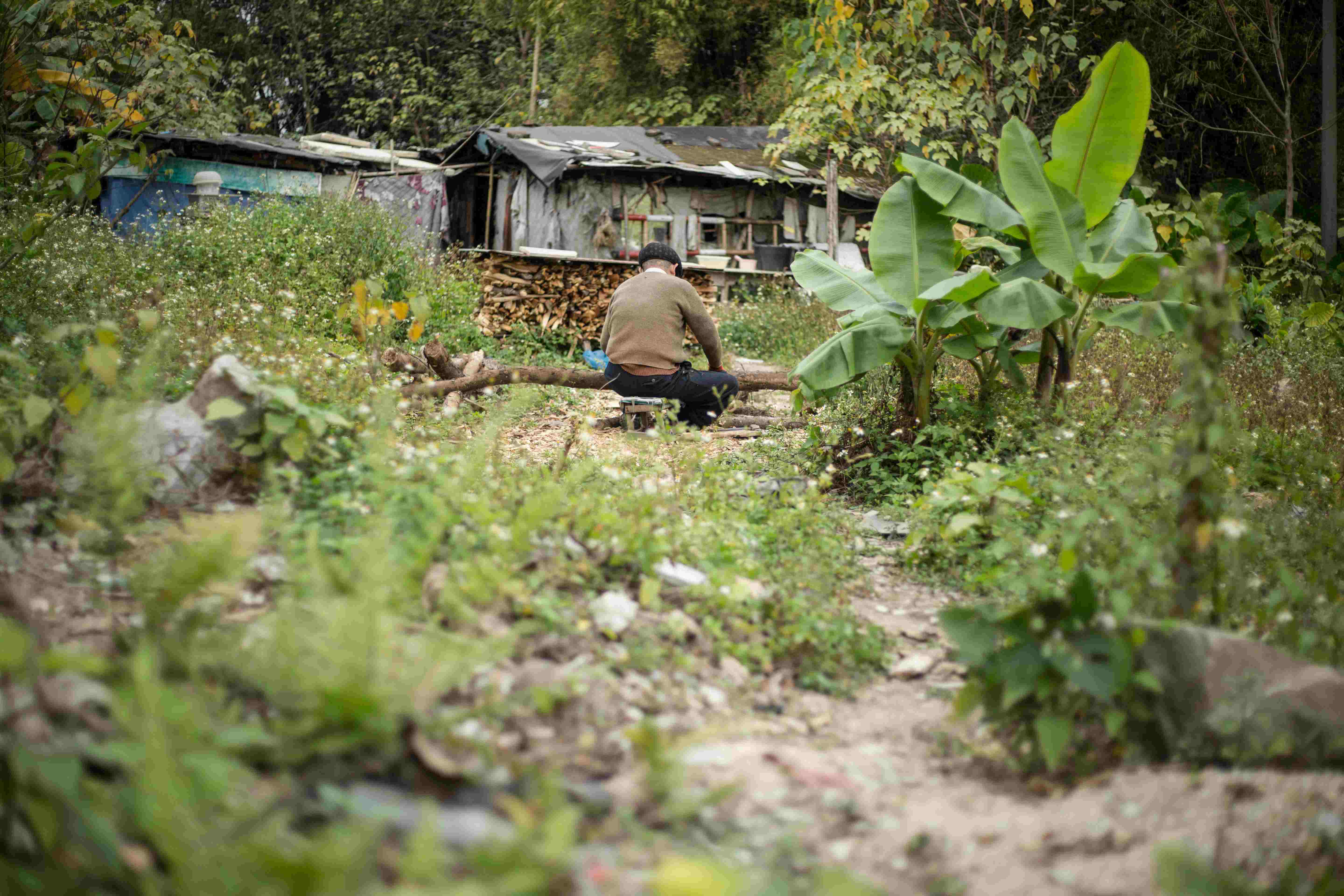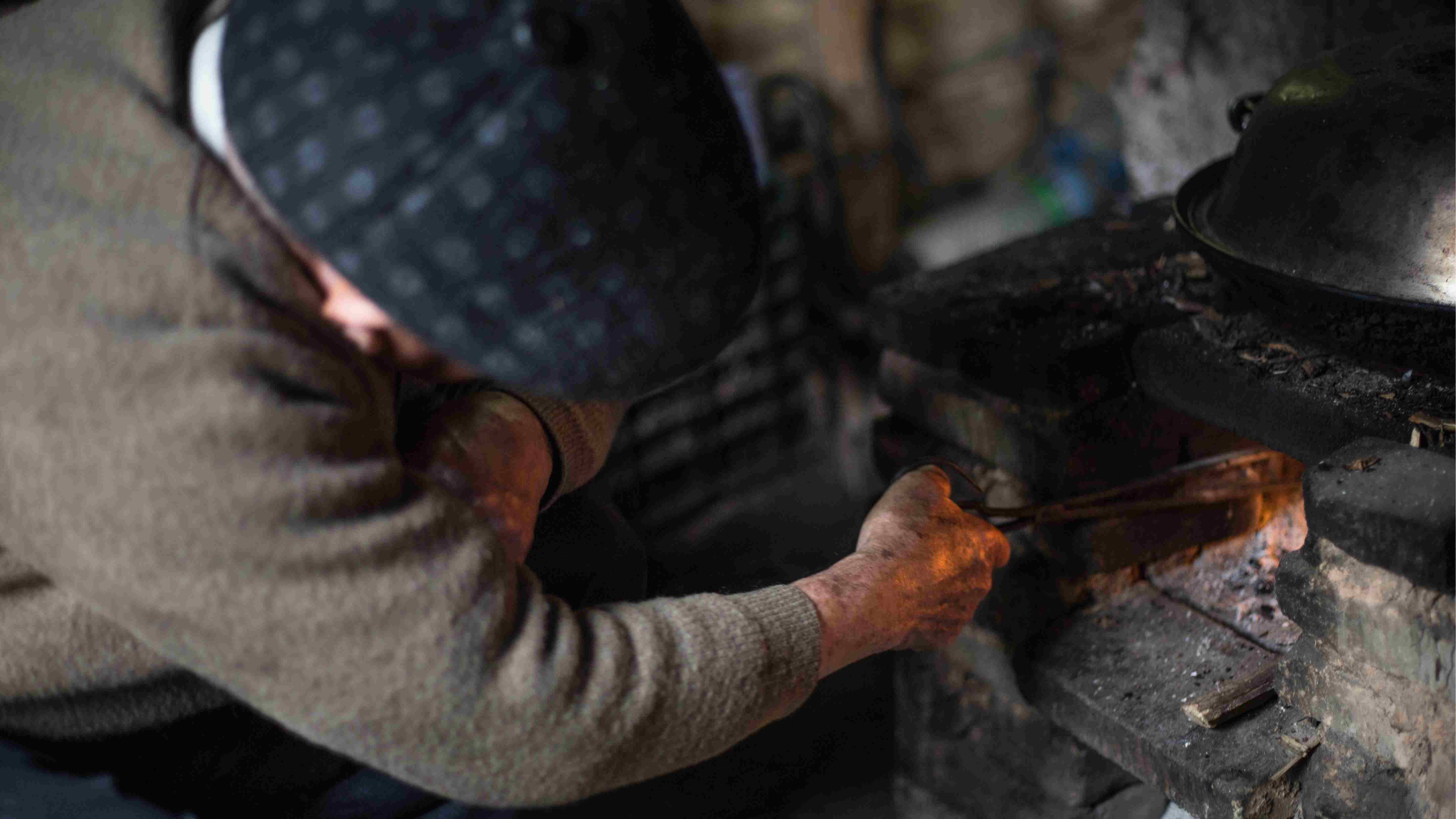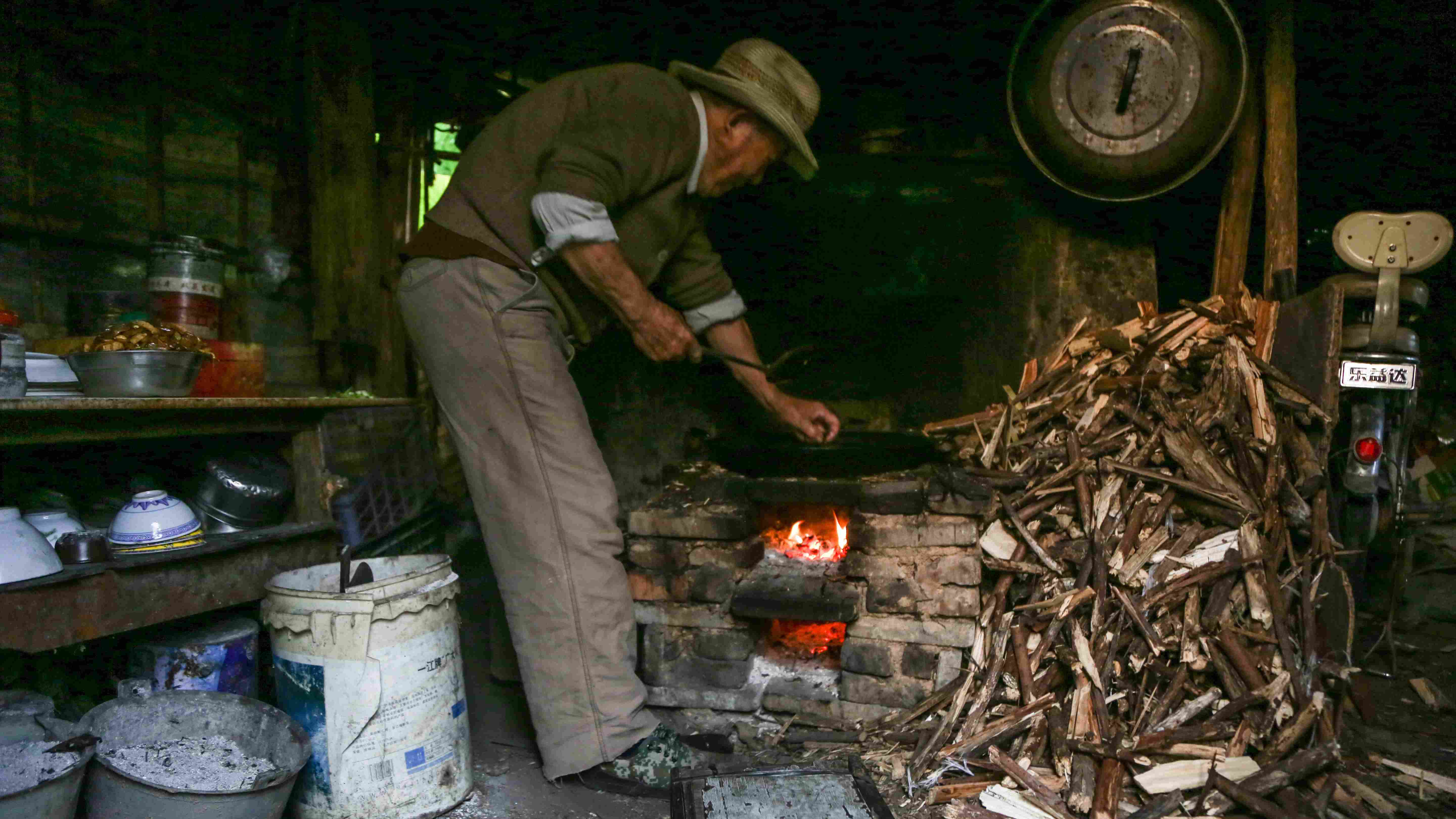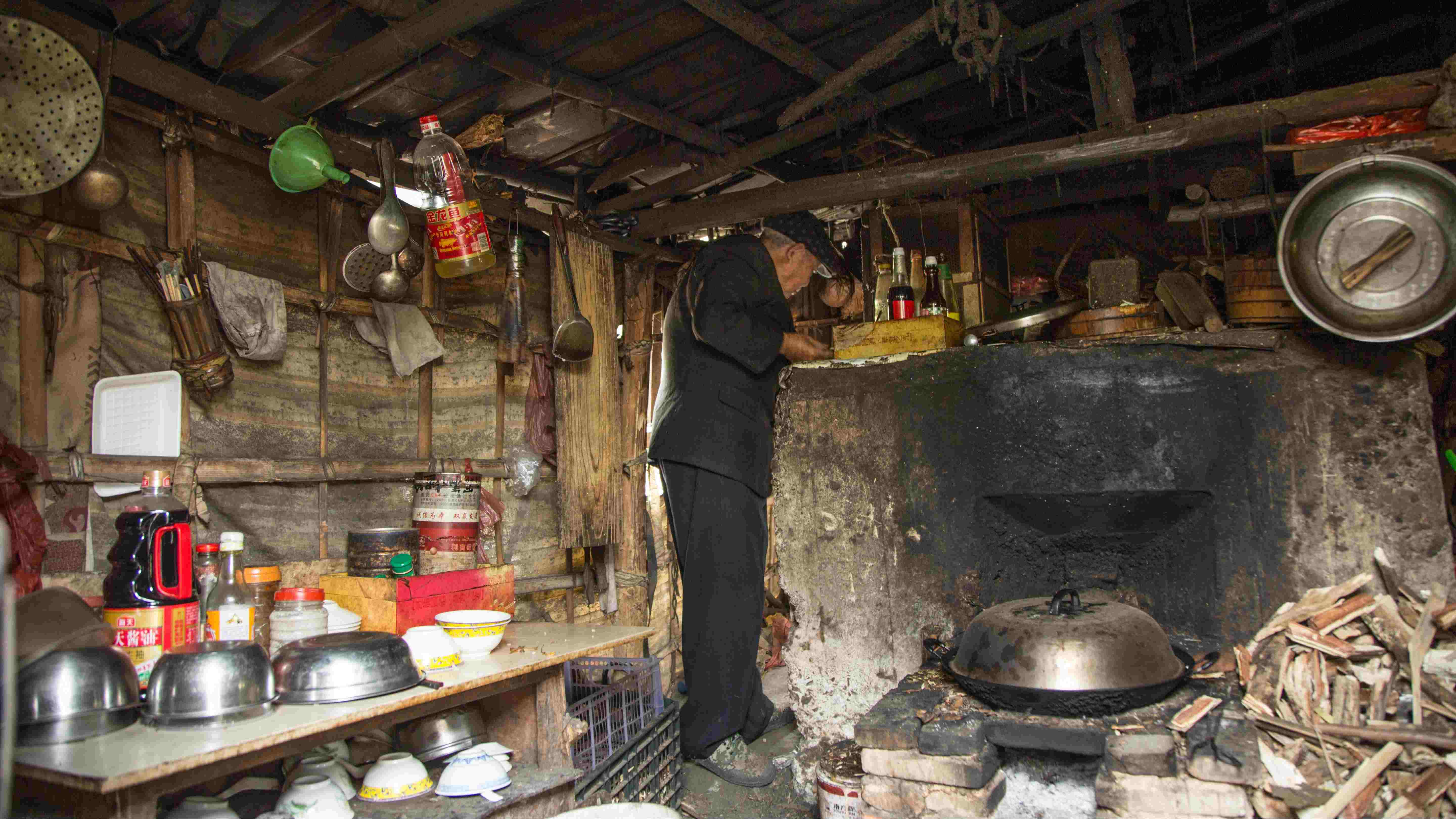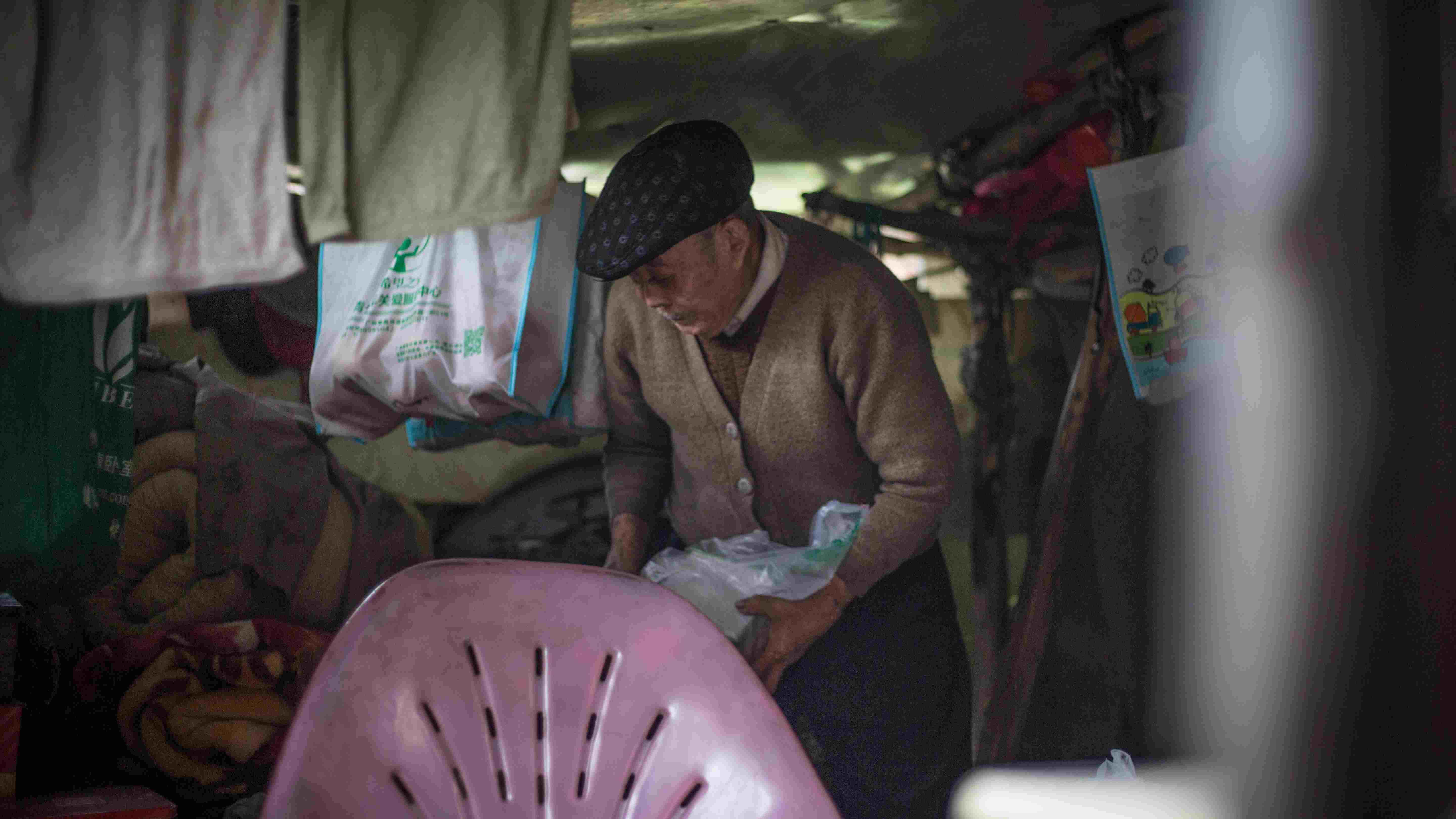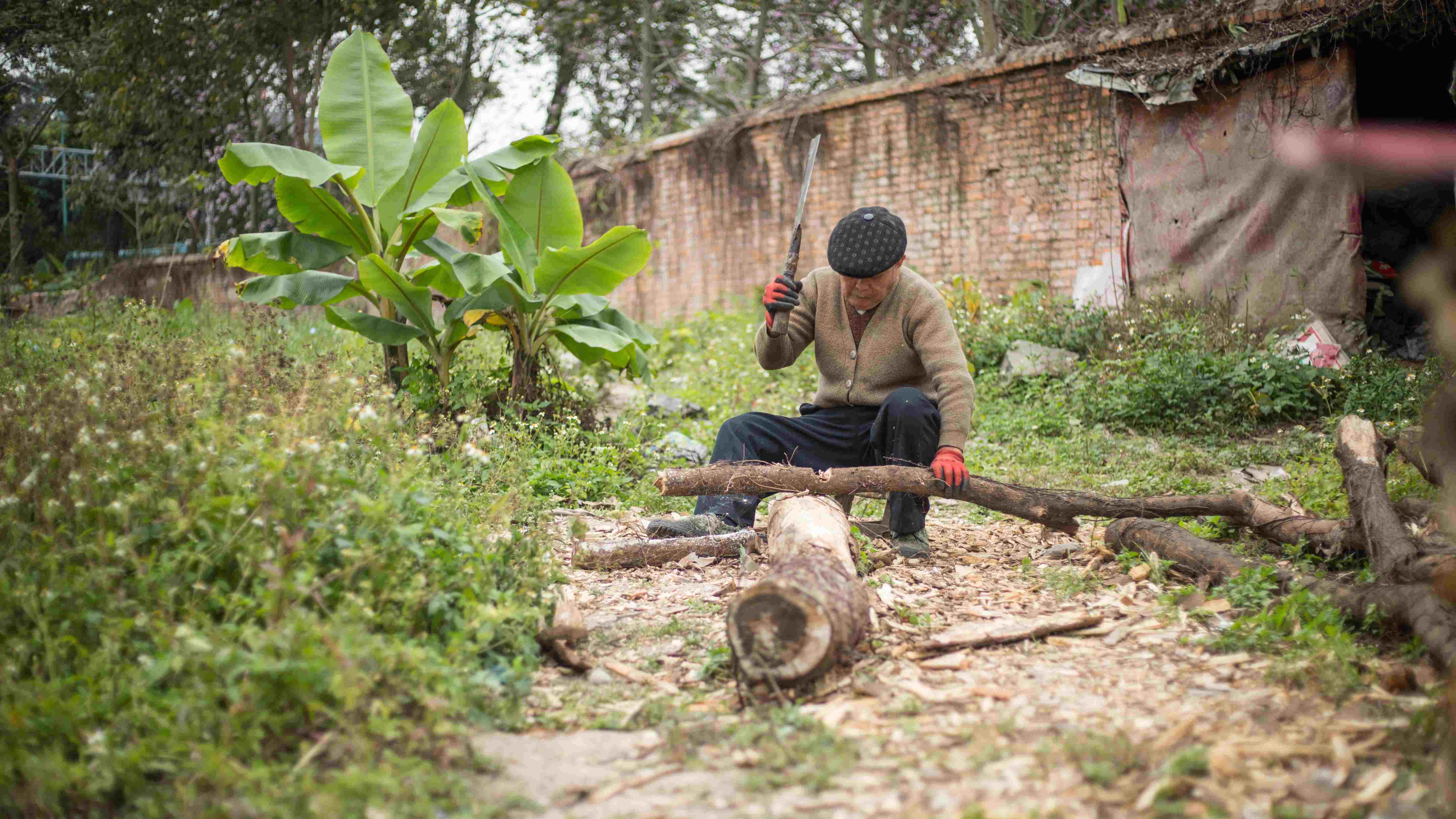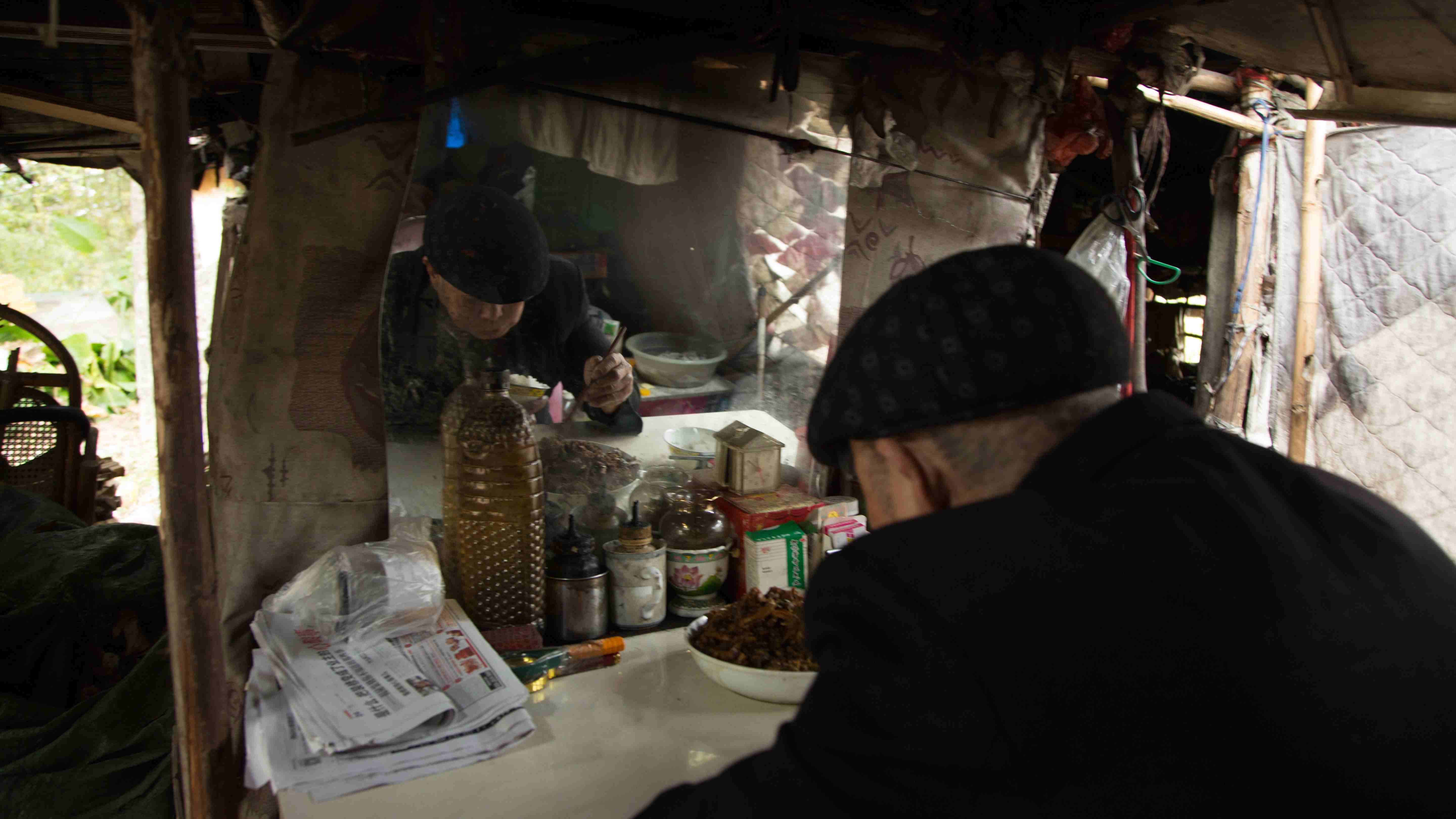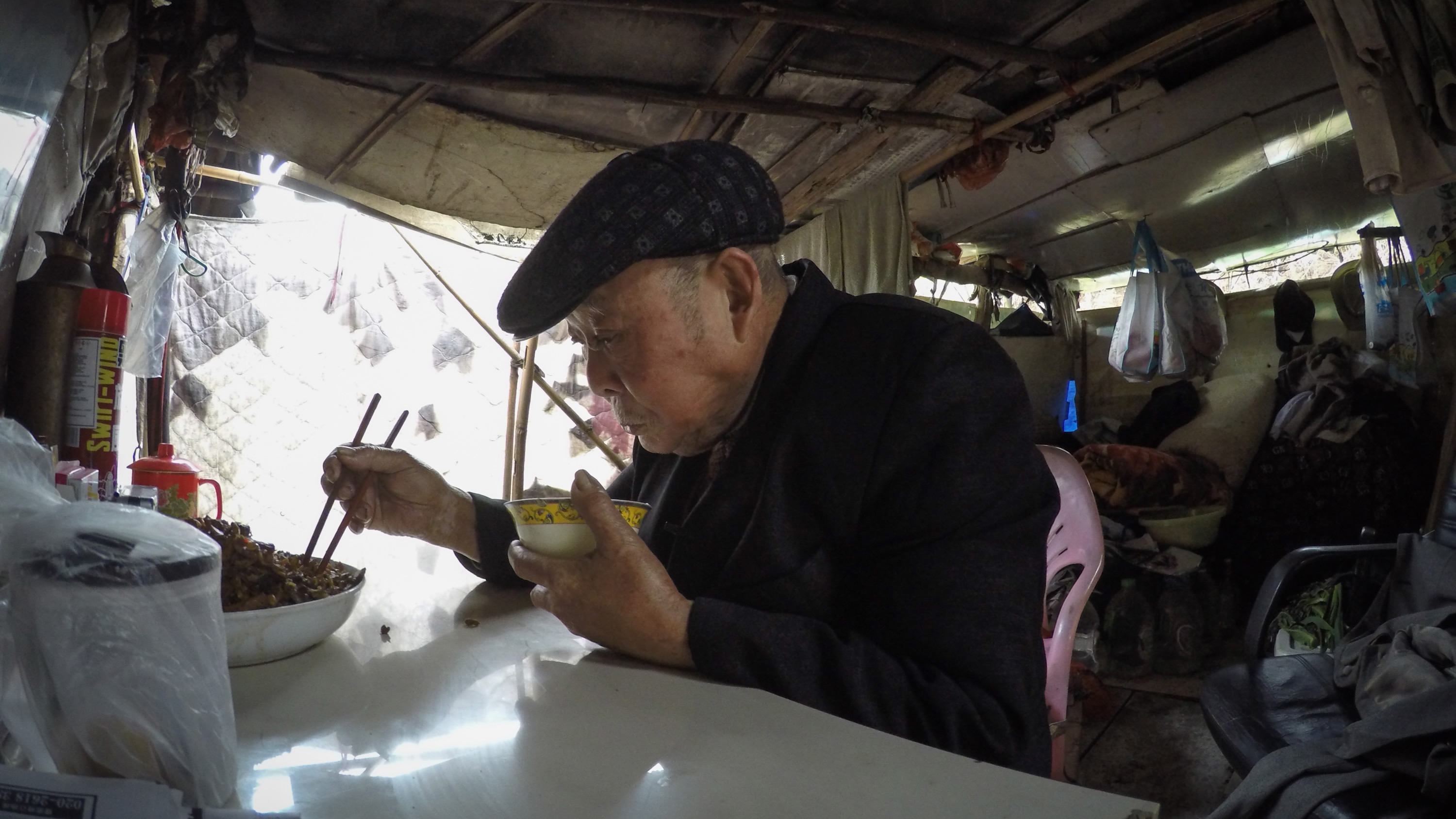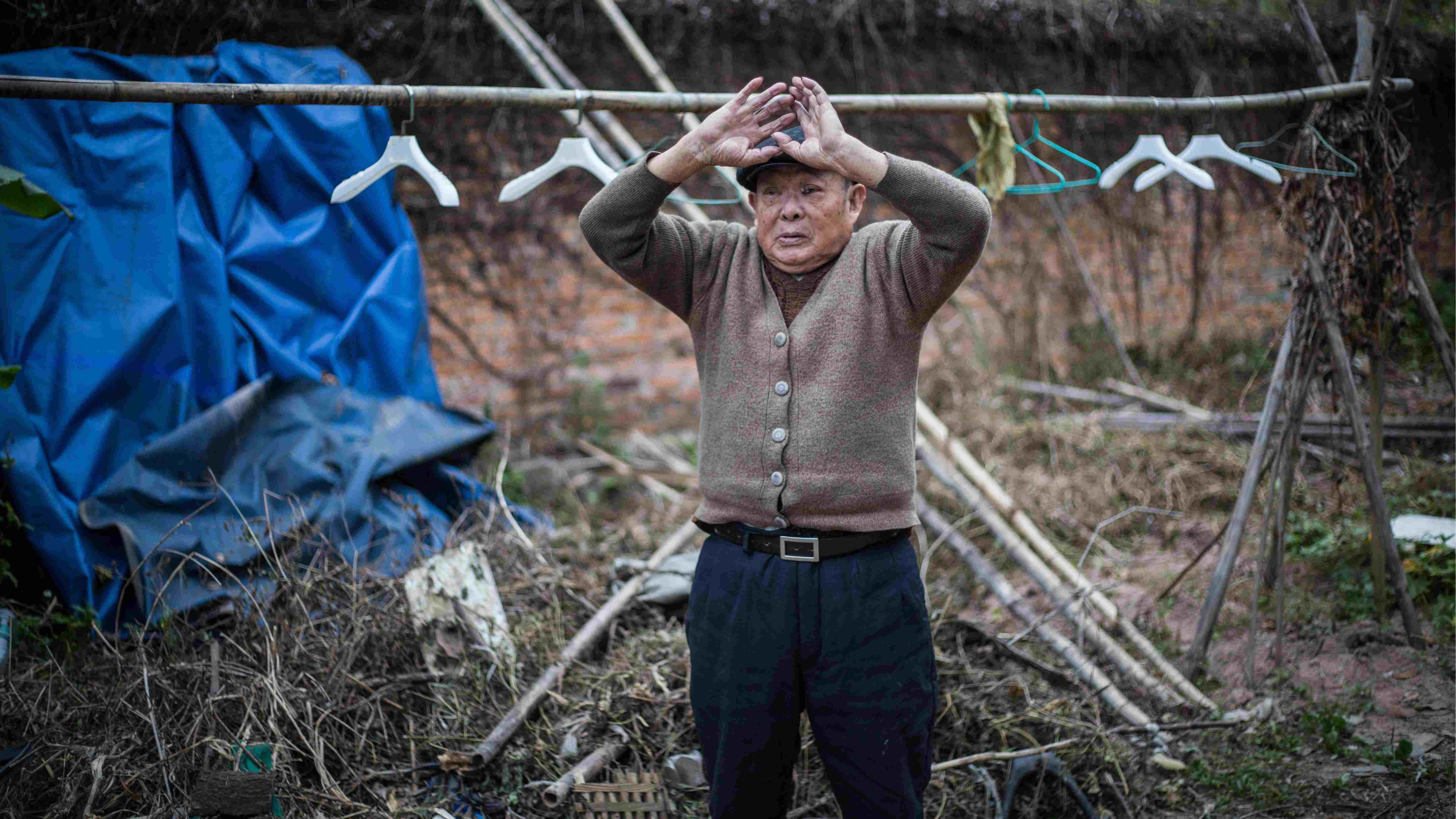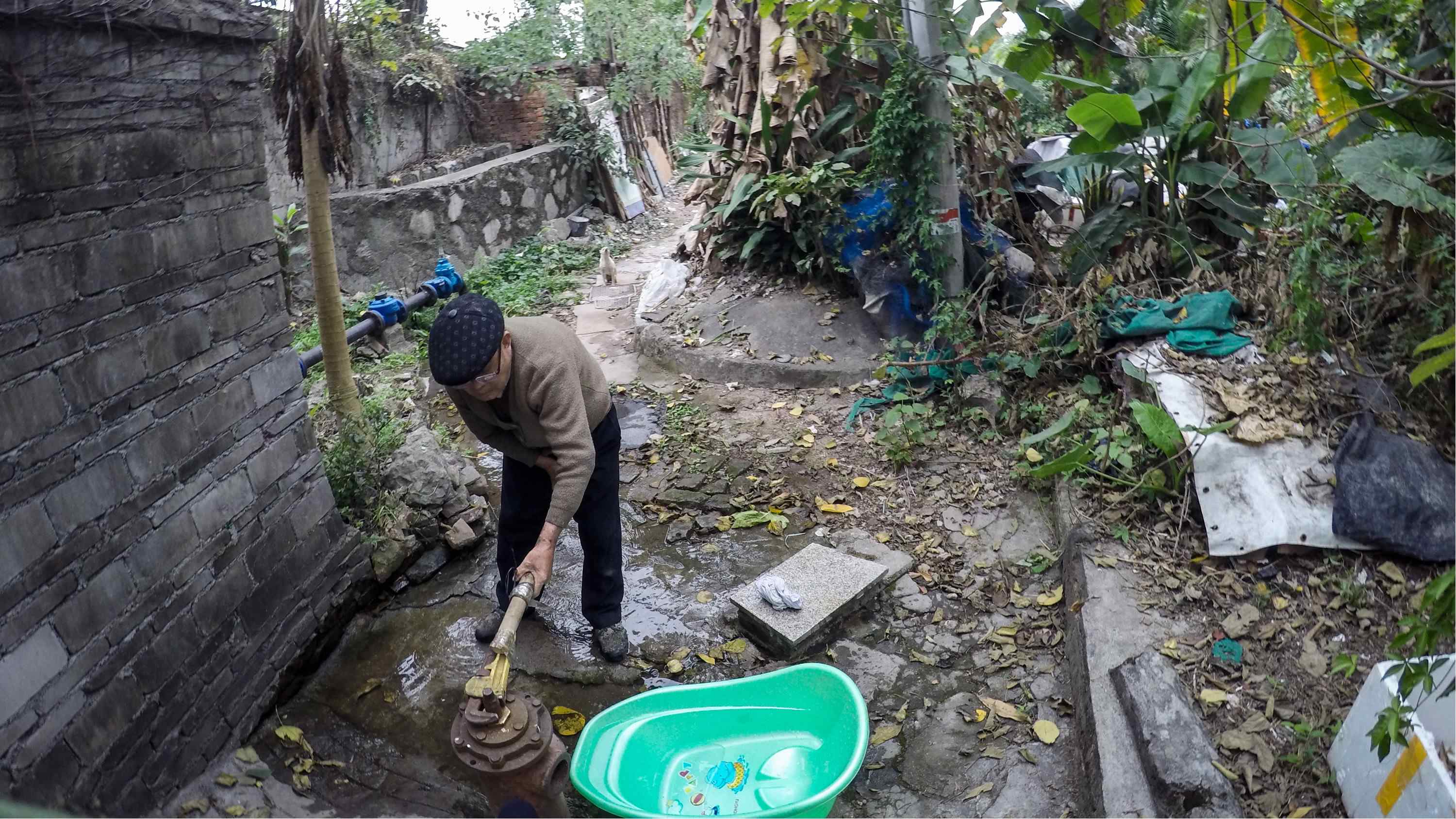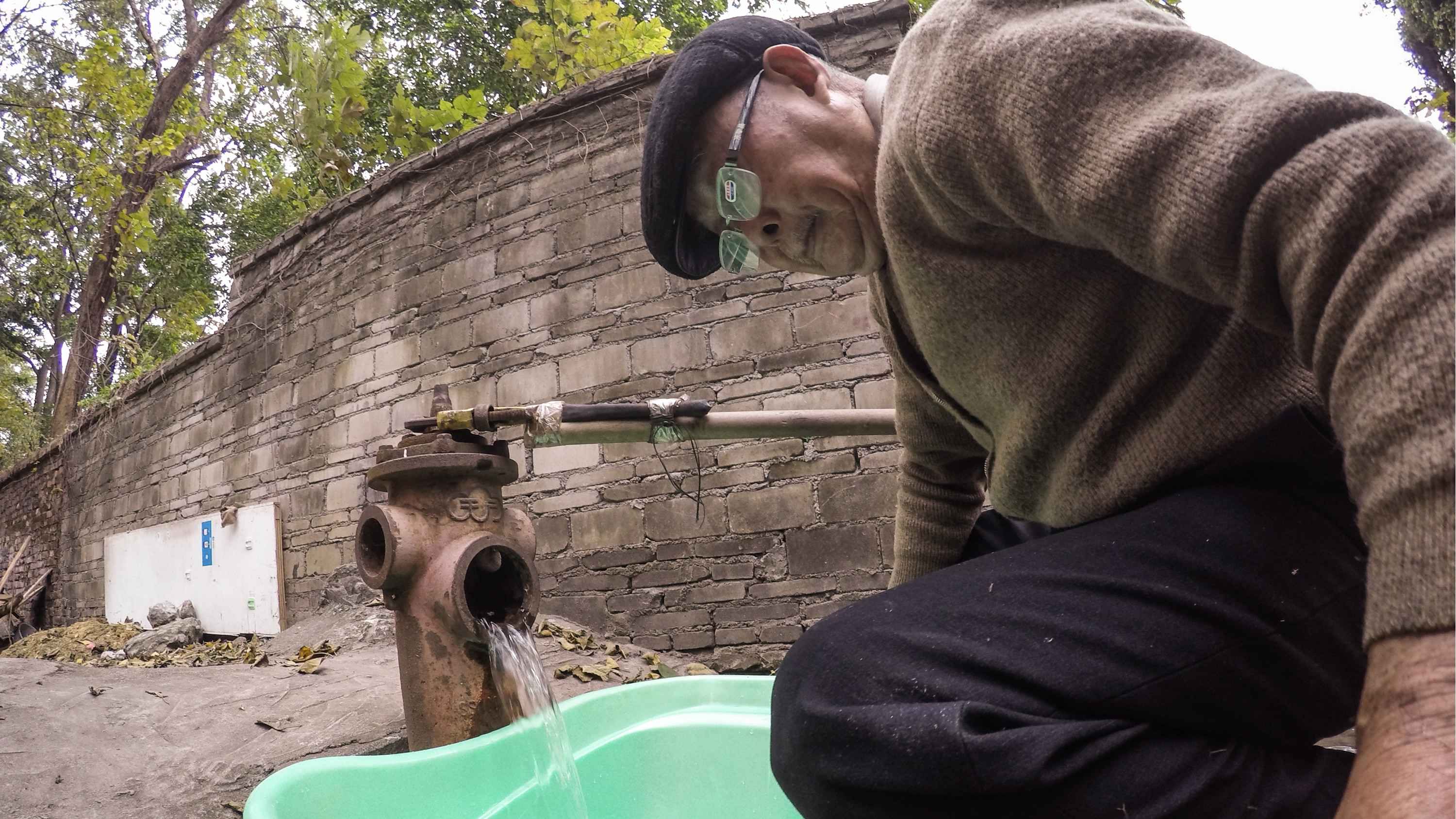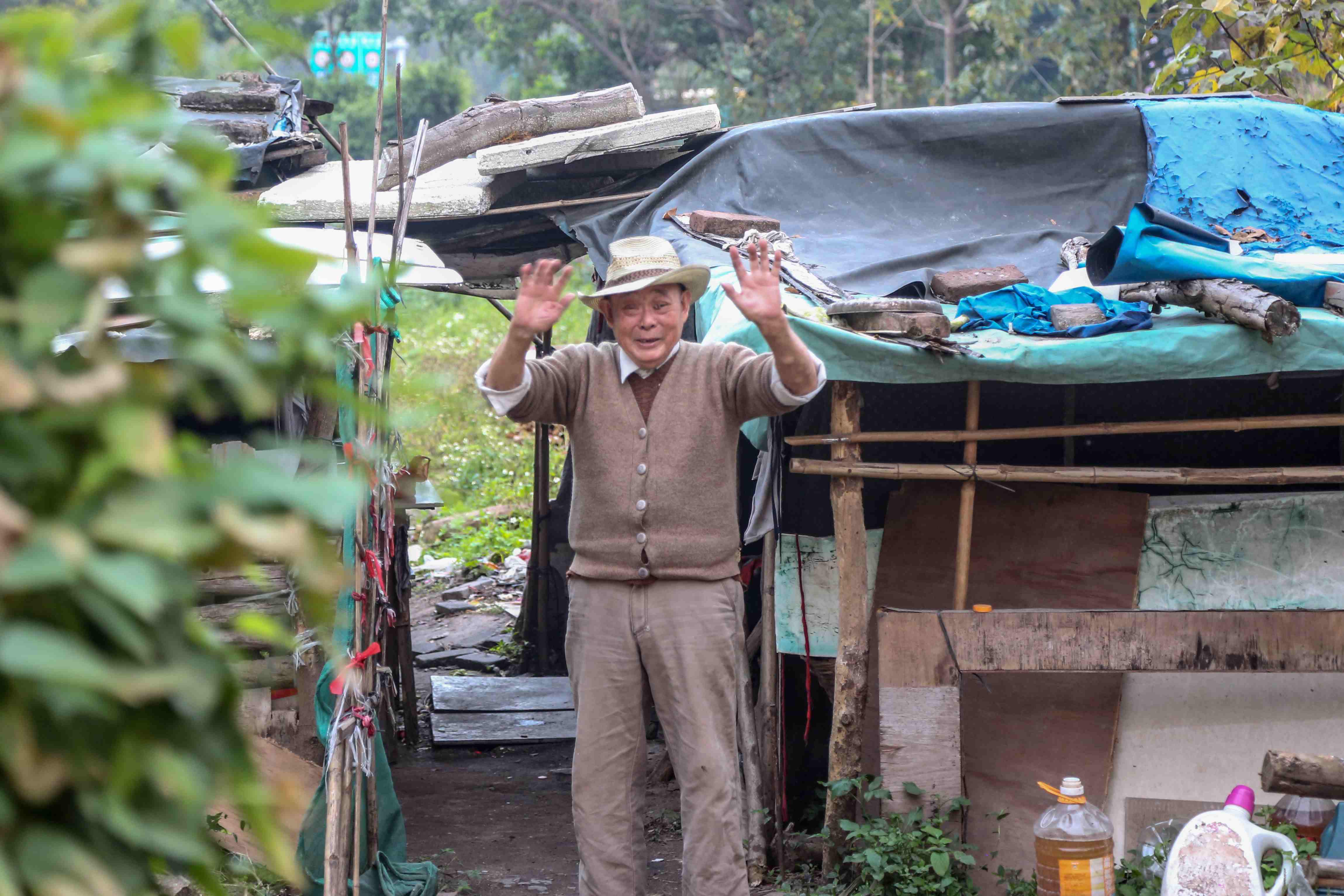Prelude
Orphaned at the age of six, unaware of his real name or origins, this 88-year-old man has dwelt in a forest near Guangzhou, one of south China’s economic hubs, for 11 years.
He has decided to live this life till death descends.
Life in the Raw
Traveling through a tunnel alongside Tianhe Coach Station, a pinhole view of thick vegetation coiling into distance slowly expands, drawing a path across which none intrude.
In the shallows of a slope where bushes entwine, a patch of land flickers on the blue horizon. Fertile soil lies unprotected on the left, with poles dug deep and chillies dotted. An airer of slim bamboo sticks stands alone on the right, empty. Banana leaves sway against the grey sky, straining to reach a trail of smoke curling up high above.
In the foreground of a deserted fort, a ragged shack sits, plastic bags covering top and sides. To and fro, the wind blows. The bags move up and down with the breeze.
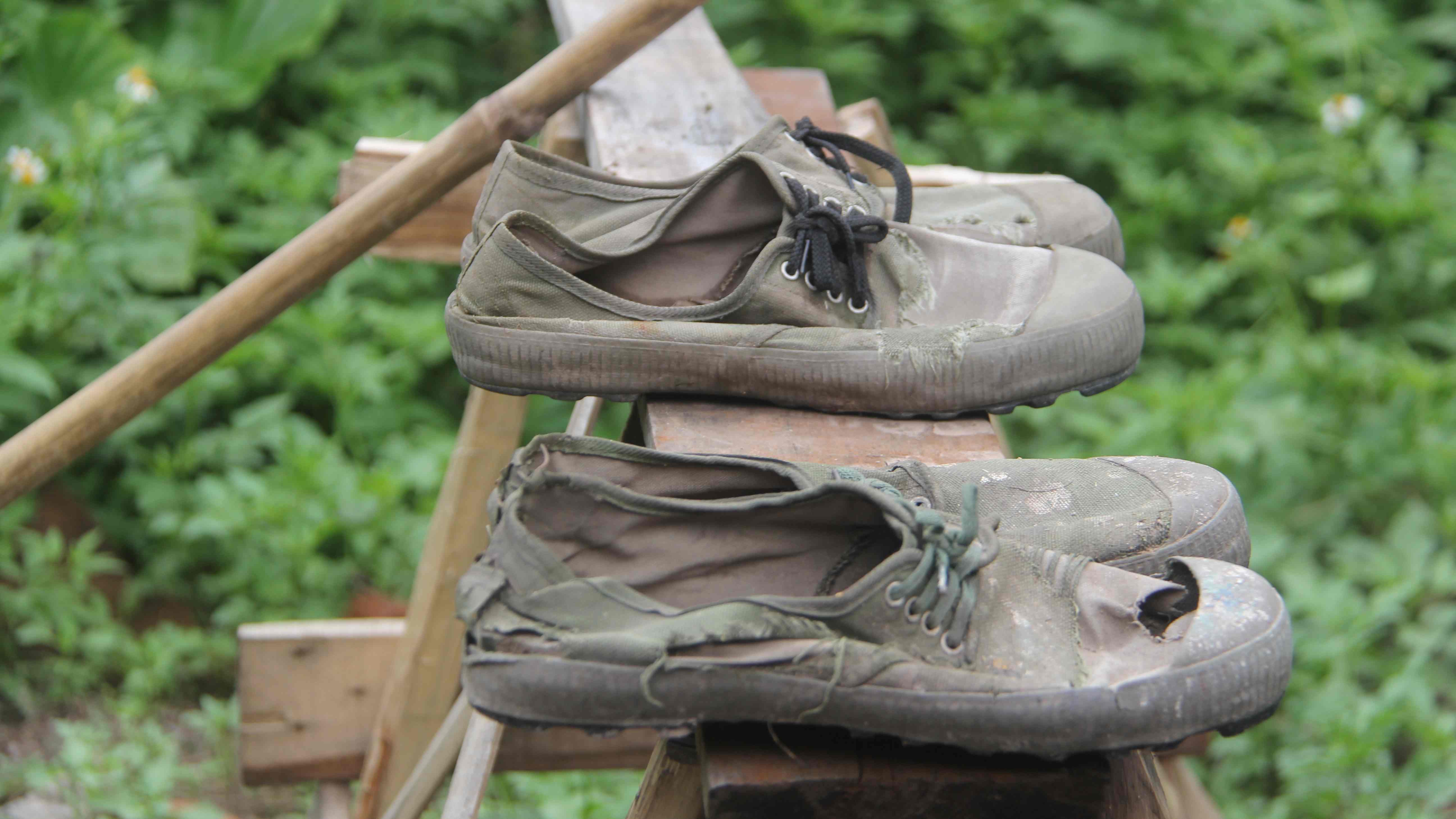
Photo by Wen Jianmin, Yangcheng Evening News
Photo by Wen Jianmin, Yangcheng Evening News
An aged man with a middling build walks out, back slightly bent. He wears a flat cap, a brown sweater and over-sized trousers in purplish blue. A growth nestles to the side of his left eye, hanging like a falling tear.
He picks up a bundle of sticks and bales a cup of water from the backyard, before retreating to the dim kitchen. No electricity runs, but two oil lamps glow dully on a desk. Everything is cramped inside. A yawn and long, free stretch of the body is a luxury the space does not afford.
Run! Follow the Crowd
In 1994, the man arrived in south China’s Guangdong Province, after a long and hard trek from the mid and lower reaches of the Yangtze River. He traveled in search of a new beginning. But tribulations did not cease. This lonely man continued to suffer. His belongings, savings and work certificates were ransacked by local rogues. Once again, life had dealt him a cruel blow.
“During the Anti-Japanese War, my mother was shot dead. I was four. Everyone was fleeing. When I was six, one day, my father snuck out to find food. He was spotted by the Japanese. They fired at us. I was scared and ran away. A rain of bullets cut through my father’s chest. He was barely breathing, but whispered ——
‘Run! Follow the crowd. Run!’
I saw him die.
I staggered up, stumbled towards the train station and the streams of people. I ran to them but fell, I got up again and ran.. and fell.. A man dressed in a military uniform approached ——
‘Boy, where are you from? Shanghai? ’
‘I don’t know. I’m starving. My father was shot dead by the Japanese.’
‘What is your name?’
‘I don’t know, they call me Mao Mao.’
That officer was surnamed Wang, so he named me —— Wang Zhifang.”
After getting a little money from the officer, Wang Zhifang began a life on the train, making ends meet on the tracks until he was 12. He then learnt construction skills from a master. And when he was 14, he began to make a living on a construction site.
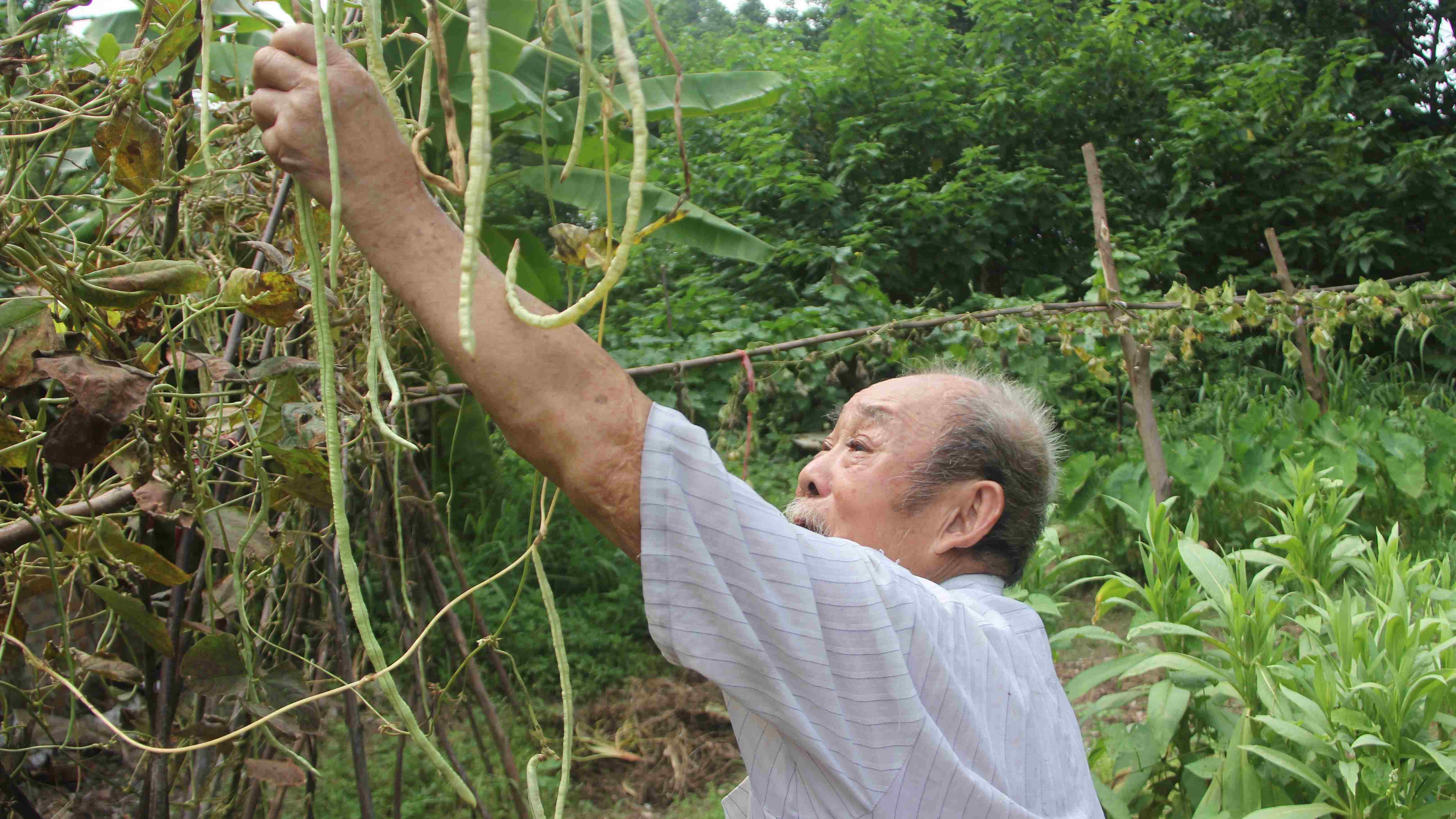
Photo by Wen Jianmin, Yangcheng Evening News
Photo by Wen Jianmin, Yangcheng Evening News
“In 1945, I was 15. The country won the Anti-Japanese War. I could make a living by myself. I traveled to many places by train: Shanghai, Hangzhou, Jiangsu, Quzhou, Fujian…mostly I did work in construction and hydraulic engineering. The country needed it after years of war. ”
Decades later, when the reform and opening-up policy was introduced in China, many rich people came to Guangzhou in search of a better living.
So in 1994, 66-year-old Wang Zhifang followed the crowd again, this time to Guangzhou. But upon his arrival, he was robbed - the certificates and 15,000 yuan (about 2,000 US dollars) in savings were gone. Suddenly, he was a man with nothing. Picking up rags to sell was his only means of survival, because he was too old to be employed.
“After the robbery, I waited and slept in the train station every day. My clothes were cut up by thieves using blades. I had nothing. Even to go to the loo, you had to pay 0.2 yuan. Once, I was terribly starving, so I drank a lot of water at the bathroom. A man saw me and asked ——
‘Are you sick? Why do you drink so much water?’
‘I’m hungry’.”
…
Such things happened every day. After two years, he finally found a shelter he could call home. A fire hydrant nearby provides water for him.
At Twilight
By 2012, Wang Zhifang was too old and sick to take care of himself. A man named Shang Binghui, known for helping vagrants, found him. The care and love from Shang and other volunteers breathed new life into Wang. They often come to help him tidy his place and give him some money. Shang said he gives Wang 500 yuan (70 US dollars) every month.
Some urge him to leave the wilderness and return to a life with others. Local government workers came to his place and tried to help him move to a nursing home. But Wang refused.

p.p1 {margin: 0.0px 0.0px 0.0px 0.0px; font: 11.0px Helvetica; color: #000000; -webkit-text-stroke: #000000}
span.s1 {font-kerning: none}
span.s2 {font-kerning: none; color: #ff0000; -webkit-text-stroke: 0px #ff0000}A local government worker came to his place and tried to help him move to a nursing home, Photo by Wen Jianmin, Yangcheng Evening News
p.p1 {margin: 0.0px 0.0px 0.0px 0.0px; font: 11.0px Helvetica; color: #000000; -webkit-text-stroke: #000000}
span.s1 {font-kerning: none}
span.s2 {font-kerning: none; color: #ff0000; -webkit-text-stroke: 0px #ff0000}A local government worker came to his place and tried to help him move to a nursing home, Photo by Wen Jianmin, Yangcheng Evening News
“This is my life”, he said. “I will live it till death descends.” And he waved us goodbye, tears coursing down his cheeks.
Kevin Macleod’s song “Laid Back Guitars” used in accordance with permission granted: https://creativecommons.org/licenses/by/4.0/
Source: http://incompetech.com/music/royalty-free/index.html?isrc=USUAN1100181
Artist: http://incompetech.com/

